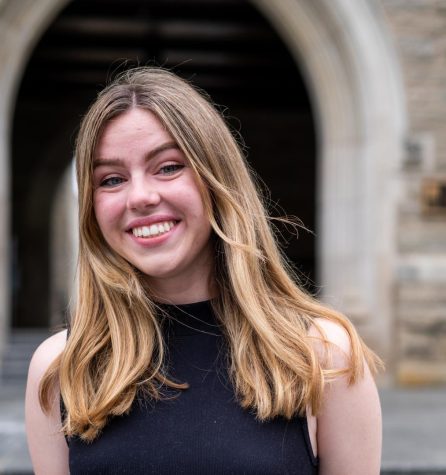As COVID Spreads, Quarantined Students Moved Off Campus
September 16, 2021
With the easing of measures to prevent the spread of coronavirus both across the country and on the University’s campus following the successful roll-out of the COVID-19 vaccine, many members of the Villanova community had hoped for a “normal” semester. The first few weeks had provided this return to normalcy, or for certain students like the sophomore class, their first glance at this normalcy. Students were able to actually see the faces of their classmates, have over four friends in their dorm room without worrying about getting in trouble with the RA, go to the gym without making reservations and actually have conversations at the dining hall without having to yell through plexiglass shields.
“I feel like we need sophmore-ientation,” said sophomore Elizabeth Weiss, an English and Communication major, commenting on the stark difference between her COVID-precaution filled freshman year and her completely different sophomore year.
However, perhaps this ‘sophmore-ientation’ may not be as necessary as Weiss had thought, as a surge in cases on campus has resulted in the return of a number of COVID-19 precautionary measures, including an indoor mask mandate regardless of vaccination status. Along with the surge in cases, of course, comes an increasing number of students sent into quarantine. Unlike last year, when all contact-traced students were also required to quarantine, only students who actually test positive are required to quarantine. Students who live within 300 miles of campus are sent home, while students residing outside of this zone are provided with a quarantine-location near school.
The surge in coronavirus cases on campus, especially among such a highly vaccinated population, was extremely unexpected, not only for students, but for the school as well. The first students to test positive at the start of the surge were initially quarantined in a limited number of rooms in the Student Health Center on campus while other arrangements were being made. Quarantined students unable to return home are now quarantining at Fairfield Inn & Suites by Marriott in Broomall, Pennsylvania, a newly-built hotel less than six miles from campus.
At Fairfield Inn & Suites, most students are provided with their own rooms, equipped with a King size bed, couch, desk, television, refrigerator, microwave, private bathroom and other amenities. Students fill out a food survey indicating their choices for breakfast, lunch and dinner for the following day, which is then left outside their door. There is also a nurse on duty 24/7 to check in on students and ensure their well-being. The nurses also make sure to check students’ vital signs twice a day. Besides spending time in their rooms, students are encouraged to enjoy some time outside, such as walking around the parking lot (masked of course). Students are also allowed to spend time in other COVID-19 positive student’s rooms.
Among the students interviewed, most reported feeling physically okay, with their main symptoms being fatigue, headaches and congestion. For the most part, students expressed their loneliness and desire to reunite with their friends on campus. Other students expressed their concern with staying on top of their workload while in quarantine, as many classes do not have virtual options set up or policies in place for students missing classes for quarantine.
“I don’t think Villanova was adequately prepared to handle the COVID situation on campus this year. Although I was vaccinated, I still tested positive for covid, and I was surprised at the lack of academic resources the school provided for other students who tested positive. One example of this was when I asked one of my professors to allow me to make up a test when I returned from quarantine, and I was denied that opportunity due to something that was completely out of my control. I found this to be unfair, and I believe Villanova should work to improve its solutions to help students with covid stay up to date academically,” sophomore Grace Phillips explained.
Other students have praised their teachers for their willingness to accommodate their situations, providing Zoom options, recorded lectures and flexible deadlines.
If quarantine can have a bright side, it may be recognizing that part of what makes it so lonely is being apart from the University’s amazing community. However, the quarantine will end and students will be able to return to that community, now with the newly-found responsibility of ensuring the health and safety of this community.
“We want a healthy semester for all Villanovans,” University President Rev. Peter M. Donohue, O.S.A., Ph.D explained in the video sent to the Villanovan community towards the start of the surge. “We’ve done this before, and we can do this again.”











